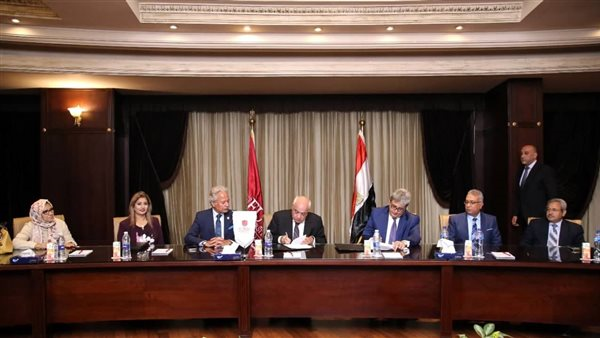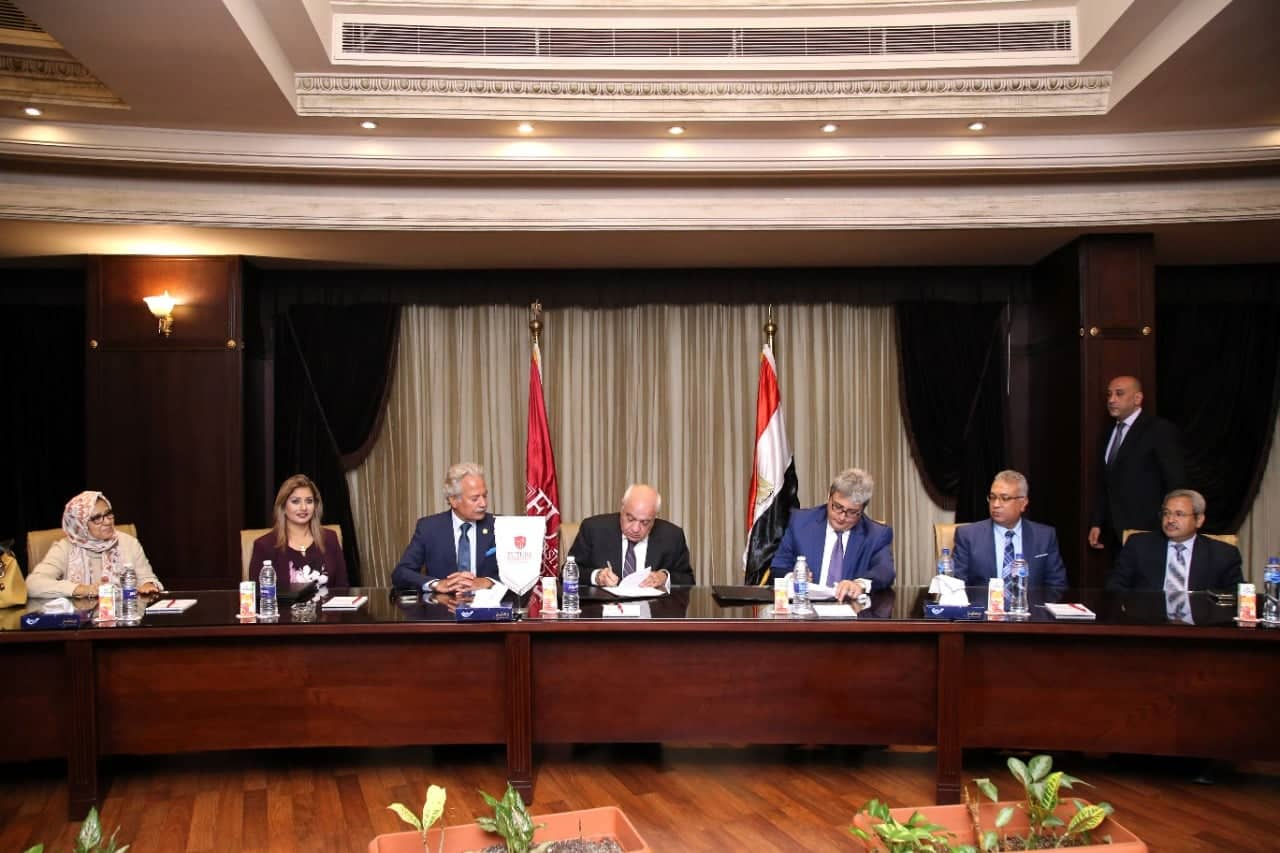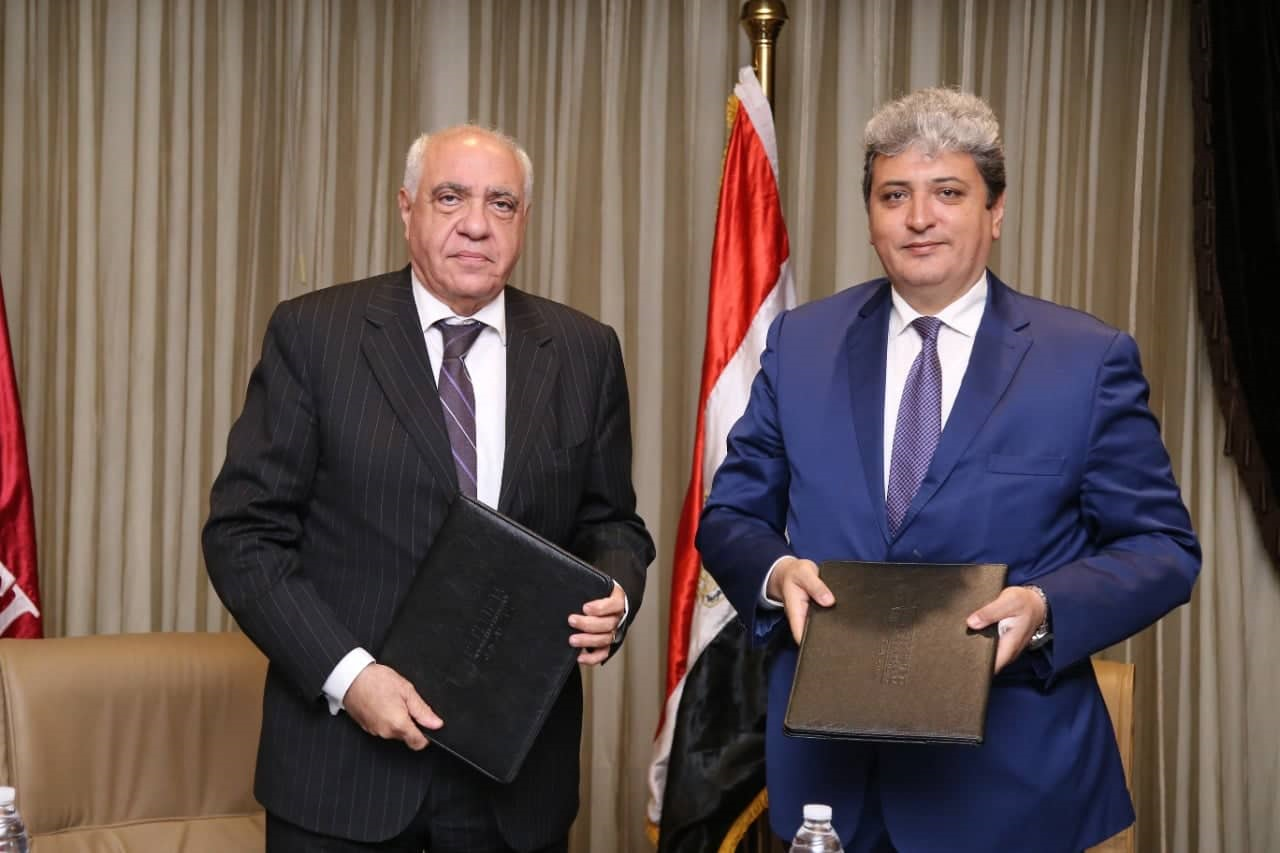Future University in Egypt signs two cooperation protocols with the Egyptian and Arab organizations for human rights
In continuation of Future University Egypt’s (FUE) contribution to community service and achieving sustainable development goals under the patronage of Khaled Azazy, Chairman of the Board of Trustees, two cooperation protocols were signed between Prof. Dr. Ebada Sarhan, President of the University, and Essam Shiha, President of the Egyptian Organization for Human Rights, and Alaa Shalaby, President of the Arab Organization for Human Rights.

This is in order to strengthen the bonds of cooperation during the next stage, in order to deepen the understanding of the human rights situation. This was raised, by spreading the culture of human rights and their comprehensive meaning, which includes civil, cultural, economic, political and social rights and the right to development, in addition to conducting joint workshops and conferences.

With the aim of contributing to the development of the human rights system by extracting work to raise awareness of human rights in accordance with international charters and agreements and local legislation, promoting equality, combating discrimination and preventing violations, and benefiting from the experiences of each party in the field of supporting and protecting human rights, enhancing participation and protecting civic space

Building the capacities of faculty members, university staff and students, updating their work mechanisms in line with international standards on human rights, strengthening the rule of law and accountability, and building a culture of tolerance and acceptance of others, in the context of implementing the National Human Rights Strategy in Egypt 2021-2026 and the activities of the year of civil society 2022, This is what the parties agreed upon as goals that prompted them to sign the two cooperation protocols.
Future University in Egypt signs two cooperation protocols with the Egyptian and Arab organizations for human rights
Future University in Egypt signs two cooperation protocols with the Egyptian and Arab organizations for human rights
Two cooperation protocols were signed between Prof. Dr. Ebada Sarhan, President of the University, and Essam Shiha, President of the Egyptian Organization for Human Rights, and Alaa Shalaby, President of the Arab Organization for Human Rights.
In continuation of Future University Egypt’s (FUE) contribution to community service and achieving sustainable development goals under the patronage of Khaled Azazy, Chairman of the Board of Trustees, two cooperation protocols were signed between Prof. Dr. Ebada Sarhan, President of the University, and Essam Shiha, President of the Egyptian Organization for Human Rights, and Alaa Shalaby, President of the Arab Organization for Human Rights. This is in order to strengthen the bonds of cooperation during the next stage, in order to deepen the understanding of the human rights situation. This was raised, by spreading the culture of human rights and their comprehensive meaning, which includes civil, cultural, economic, political and social rights and the right to development, in addition to conducting joint workshops and conferences. With the aim of contributing to the development of the human rights system by extracting work to raise awareness of human rights in accordance with international charters and agreements and local legislation, promoting equality, combating discrimination and preventing violations, and benefiting from the experiences of each party in the field of supporting and protecting human rights, enhancing participation and protecting civic space Building the capacities of faculty members, university staff and students, updating their work mechanisms in line with international standards on human rights, strengthening the rule of law and accountability, and building a culture of tolerance and acceptance of others, in the context of implementing the National Human Rights Strategy in Egypt 2021-2026 and the activities of the year of civil society 2022, This is what the parties agreed upon as goals that prompted them to sign the two cooperation protocols.
